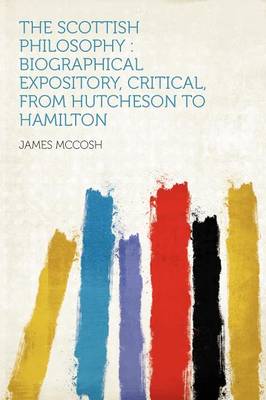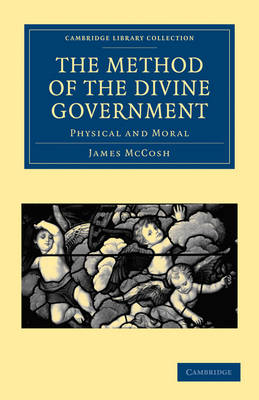Amer Philosophy, Religion
2 total works
James McCosh (1811-94), the Scottish philosopher, graduated from the University of Glasgow, spent some time as a minister in the Church of Scotland but then returned to philosophy and spent most of his career at Princeton University. The eighteenth-century Scottish Enlightenment had many influential philosophers at its core. In this book, first published in 1875, McCosh outlines the theories of eighteenth- and nineteenth-century philosophers and identifies Scottish philosophy as a distinct school of thought. He summarises both the merits and the possible criticisms of each philosopher's work and also gives detailed biographical information. Among the philosophers discussed are the influential David Hume, Thomas Reid and Adam Smith. The final chapter focuses on Sir William Hamilton, a philosopher who greatly influenced McCosh (whose other works, The Religious Aspect of Evolution and The Method of the Divine Government are also reissued in this series).
This 1850 edition of The Method of The Divine Government is the Scottish philosopher and clergyman James McCosh's influential account of how God's providence, which in his opinion is an unquestionable fact, governs the world in both a physical (external) and in a moral (internal) sense. The latter is particularly connected to the many layers that make up man's conscience. This second edition, which consists of four parts ('books') and an appendix, differs from the original version as McCosh pays far more attention to first principles than to fundamental ones. He seeks to pinpoint God's character and probes the depths of man's conscience (First Book) and in the following he delves into the physical aspects of God's government, paying particular attention to Comte's Positivism. McCosh devotes part three to a detailed analysis of the human mind and moral nature and finally in the fourth part he reconciles God and man.

